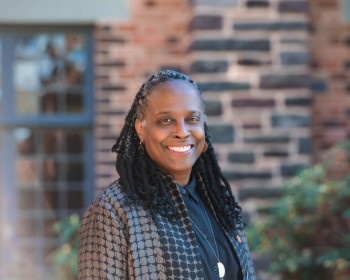Letter from President Wiewel, April 30
Dear Lewis & Clark Community,
In the immortal words of Yogi Berra, “It’s tough to make predictions, especially about the future.”
Yogi’s quote may or may not be real; the need to plan ahead is. But before we start looking to the future, let’s celebrate the accomplishment of making it through this academic year. We have much to celebrate, especially our graduates in all three schools.
The College of Arts and Sciences is holding a virtual commencement on May 9. I’ve had a preview of some of the speeches, and they are wonderful. The Graduate School of Education and Counseling’s virtual ceremony takes place June 7. The Law School is looking forward to honoring its graduates in person sometime in the fall, and the other schools will plan future in-person celebrations too. I know our entire community joins me in congratulating our graduates and their families. And big thanks go to the faculty and staff who got them to the finish line.
Looking ahead, we will offer summer classes in all three schools. The first session will be online, and a decision about the second session will be made later. This gets us to the good news: we can finally begin to think and talk about REOPENING! Actually, we never closed, but we sure look forward to returning to some form of normal.
Each of our three schools is developing specific plans for how we may be able to operate this fall under different scenarios. We are guided in this effort by the three-phase framework for reopening laid out by Oregon Governor Kate Brown JD ’85.
- Phase 1 starts once coronavirus cases have declined for two weeks and the state has sufficient capacity for testing. Groups of more than 10 are still prohibited and telework is continued.
- Phase 2 begins after progress continues for two more weeks. Gatherings can be as large as 50, schools and gyms can reopen, and non-essential workers can go back to work, observing proper distancing.
- Phase 3: life returns to more or less normal.
We think it’s likely we will be in Phase 2 by fall, allowing in-person classes to resume and many students to live on campus. We will need some form of testing to make sure people coming back are healthy, and we must have a ready capability to test if any illness occurs. We may have to spread out more in the classrooms, which may have some consequences for scheduling. And we may have students live farther apart, and set limits for large gatherings. We are also developing scenarios in case we have to return to online learning mid-semester.
Three take-aways: first, we fully intend to return to in-person education this fall, unless the Governor’s orders indicate otherwise. Second, we are putting extra measures in place to protect the health of our students, professors, and staff. Third, we are working closely with the Oregon Health Authority, Multnomah County Health Department, and state government. Oregon has been among the most successful states in the nation in controlling the spread of the coronavirus, and we are confident that together we will be able to maintain this success.
As we close this semester, it’s useful to reflect on the nature of learning during this time. Associate Professor of French Molly Robinson directs the Teaching Excellence Program (TEP) for the College of Arts and Sciences, and her recent post about teaching during COVID-19 conveys wisdom for us all:
Even though the tools at our disposal seem more limited than before, there are still many ways to carry on with our teaching. I’ve been amazed at the variety of creative ways we have found as a community to continue to show up for each other and our students. We may feel successful at times, and like dismal failures at others. Among all the different methods we are using to deliver our content and connect with our students, there is a common thread: we’re still here. We’re adjusting, we’re trying, learning new skills, and so are our students.
In all cases, each of us is learning or learning anew how important critical thinking and care for each other is when responding to crisis. Every day we’re made aware of our interdependence as we face potential threats to our lives and livelihood as well as threats to truth and science. Our work together is more important than ever.
Thank you, all, for showing up again and again.
Wim Wiewel
President
More Office of the President Stories
The Office of the President is located in Frank Manor House on the Undergraduate Campus.
MSC: 33
email president@lclark.edu
voice 503-768-7680
fax 503-768-7688
President Robin Holmes-Sullivan
The Office of the President
Lewis & Clark
615 S. Palatine Hill Road MSC 33
Portland OR 97219

